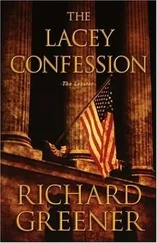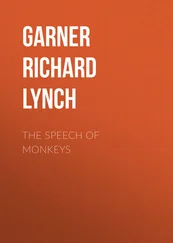Richard Greener - The Knowland Retribution
Здесь есть возможность читать онлайн «Richard Greener - The Knowland Retribution» весь текст электронной книги совершенно бесплатно (целиком полную версию без сокращений). В некоторых случаях можно слушать аудио, скачать через торрент в формате fb2 и присутствует краткое содержание. Жанр: Триллер, на английском языке. Описание произведения, (предисловие) а так же отзывы посетителей доступны на портале библиотеки ЛибКат.
- Название:The Knowland Retribution
- Автор:
- Жанр:
- Год:неизвестен
- ISBN:нет данных
- Рейтинг книги:5 / 5. Голосов: 1
-
Избранное:Добавить в избранное
- Отзывы:
-
Ваша оценка:
- 100
- 1
- 2
- 3
- 4
- 5
The Knowland Retribution: краткое содержание, описание и аннотация
Предлагаем к чтению аннотацию, описание, краткое содержание или предисловие (зависит от того, что написал сам автор книги «The Knowland Retribution»). Если вы не нашли необходимую информацию о книге — напишите в комментариях, мы постараемся отыскать её.
The Knowland Retribution — читать онлайн бесплатно полную книгу (весь текст) целиком
Ниже представлен текст книги, разбитый по страницам. Система сохранения места последней прочитанной страницы, позволяет с удобством читать онлайн бесплатно книгу «The Knowland Retribution», без необходимости каждый раз заново искать на чём Вы остановились. Поставьте закладку, и сможете в любой момент перейти на страницу, на которой закончили чтение.
Интервал:
Закладка:
“That’s impressive,” Walter said.
“Let me tell you,” Ike went on. “I was shocked. How this man remember Sissy’s sister? Sissy’s so happy she just sort of drifts away and I’m left standing there, just me and Minister Henry Broomfield. I look at him and say how could he remember my wife’s sister after maybe forty years? Her sister! That man put his hand on my shoulder, and with that same smile he just gave my Sissy he whispers to me, ‘They all got sisters.’”
The three friends were silent. What more was there to say. At last Billy said, “Sonofabitch. You want me to write it?”
“That’s good,” Ike said.
“How can people vote for this one?” asked Walter.
“How can they vote for any of them?” said Billy. “Nobody’s got the slightest fucking idea what this stuff is all about.”
“Okay,” Walter said, looking over to Ike for approval.
“That’s good,” the old man said again.
“Well then,” Billy said. He rambled over to the chalkboard next to the ancient cash register and, for the time being, a miniature Christmas tree, picked up the blue chalk, and wrote, “Hitler/Martin Luther King, Jr./Henry Broomfield.”
Walter ordered a fresh Diet Coke and Billy’s special swordfish steak with everything-the salad and potatoes too. He was hungry at last. And he was thinking, “They all got sisters.”
St. John
The chase was easy. The path well traveled. It was a foregone conclusion that he would find what he was looking for. At the heart of it all lay what people call “intuition.” Walter understood intuition as hidden calculation, invisible counting, and weighing. It made some card players rich, told goalies where to stick the glove without ever seeing the shot, drove scientific breakthroughs. As Walter had tried to explain to Billy and Ike, the conscious mind can’t find or control the place where these calculations are made.
Intuitive people get results through a one-way door in the mind. This worked better for some than others. Walter believed that to fully exploit intuition, people needed intelligence. What’s more, high intelligence plus intuition equals genius. True, people of average intelligence also have hunches and often know how to play them. Walter considered himself an average man with better-than-average hunches.
These skills and the resources he nurtured in thirty years spent finding people gave him a great advantage over cops and associated freelancers. He was confident of that. He faced no bureaucracy or any of the other multitudes of institutions that claim to be so vital to human sociology, yet more often than not are designed primarily to make things harder than need be. He worked without warrants, court orders, or permission, unshackled by rules. He encountered none of the legal, political, or jurisdictional red tape (priding himself on actually knowing the origin of the term) that plagued law enforcement. Most of all, when he thought about what made him a success he credited much of it to the simple fact that he knew what he was doing. His natural affinity for the process, going all the way back to Freddy Russo in Saigon, was only sharpened by years of experience. He wasn’t quite able to recognize it, let alone have such feelings see the light of day, but deep inside he knew he loved it. The plane rides, the long drives to the middle of nowhere, the finest hotels in the capital cities of the world and the cheap ones in towns nobody wanted to spend time in. He loved the solitude, the privacy, the assurance of being alone, the certainty he could not possibly run into anyone who knew him. Especially himself.
Over time, Walter accumulated and cultivated a list of people who could get him access to information he needed either to begin or continue his searches. He made a conscious point of staying in touch with former clients and others he met along the way who could be useful to him in the future, and he was a truly good friend to those among them whom he really liked. He learned to distinguish gratitude from relief. Some clients lost their gratitude fast. Some never had it at all. Some never lost it-and many of these were positioned to help. The well was deep, and now he drank from it yet again.
“Hoe gaat het, Aat,” said Walter, sitting on his deck, the tropical sea spread out beneath him, the telephone resting easily on his shoulder.
“Walter, my friend,” was the surprised and happy reply. “How are you?”
Aat van de Steen was a Dutchman, a man of rare candor with a ripe sense of humor and a self-confidence Walter knew to be of awe-inspiring proportions. If you asked what he did, he most probably would describe himself as a soldier of fortune. And he would do so with a flourish, a smile, and a twinkle in his eye. What did Aat van de Steen do? Who could be sure?
“How are you, old man?” said the Dutchman. “So wonderful to hear your voice again.”
“Old man?” said Walter. “You’re older than me.”
Van de Steen laughed. “Not in the ways that count, my friend. For there I am forever young.”
“Yeah, you and Zimmy.”
“Zimmy?”
“Dylan. Bob Dylan. ‘Forever Young.’”
“You think I don’t know your Bob Dylan?” The Dutchman laughed again. “You are-how do you say-kidding me.”
Walter said, “Good to hear your voice too, Aat.”
The Dutchman was suddenly serious. “You must need some help, no?”
“I do,” said Walter. “I certainly do.”
Walter and Aat van de Steen first met in Laos in the summer of 1971. Both men were new to their trade, both blessed with special abilities, which, if handled with care and developed properly, were certain to make both successful. Van de Steen had begun with a few small deals with some Eastern European irregulars. He soon branched out to Northern Africa and the former Dutch colonies in Asia. It was through an Indonesian that he got his first contract in Laos. Over the years, the decades, in fact, Aat van de Steen had become one of the world’s busiest and wealthiest arms dealers. From his headquarters in Amsterdam, on the city’s fanciest canal, the Herens Gracht, he bought, sold, and controlled a lion’s share of the movement of weapons-from handguns to tanks, helicopters, even heavy artillery-on every inhabited continent on the planet. “War is the most fundamental attribute of humanity,” he once told Walter. “I serve the species.” Over the years, Walter ran into him on his occasional trips to Europe. He made a point of it. At each meeting they renewed their friendship with genuine warmth, affection, and respect. Then, eleven years ago, Aat’s brother suddenly disappeared when he was unable to pay a substantial gambling debt. Although Aat’s reputation and unquestioned power protected his brother from harm, Jan van de Steen panicked and went to hiding. He left behind his wife, three children, and a brother who was a friend of Walter Sherman. It took Walter a month to find the younger van de Steen holed up in an apartment in Vancouver, Canada. By then, Jan was ready to be caught. Walter returned him safely to his family in Zoetermeer, and, of course, he refused any money from Aat.
Walter detailed the guns, the equipment, and the ammunition Leonard Martin used and deposited with Isobel. As Walter spoke and Aat jotted some notes, the Dutchman said nothing more than an occasional “okay.” Had the two been in the same room, a nod of his head would have sufficed.
“I will call you when I have something,” van de Steen said. “And Walter, you would do yourself well to come see me in Amsterdam. Not now because it’s too cold here for an island man like yourself, but in spring-then we can sit in the Leidens Plein, drink coffee, and watch all the Swedish girls.” He laughed again, and so did Walter. “In fact, Walter, I will tell you what I will do. I will take you to the Yab Yum. Yes I will.”
Читать дальшеИнтервал:
Закладка:
Похожие книги на «The Knowland Retribution»
Представляем Вашему вниманию похожие книги на «The Knowland Retribution» списком для выбора. Мы отобрали схожую по названию и смыслу литературу в надежде предоставить читателям больше вариантов отыскать новые, интересные, ещё непрочитанные произведения.
Обсуждение, отзывы о книге «The Knowland Retribution» и просто собственные мнения читателей. Оставьте ваши комментарии, напишите, что Вы думаете о произведении, его смысле или главных героях. Укажите что конкретно понравилось, а что нет, и почему Вы так считаете.











